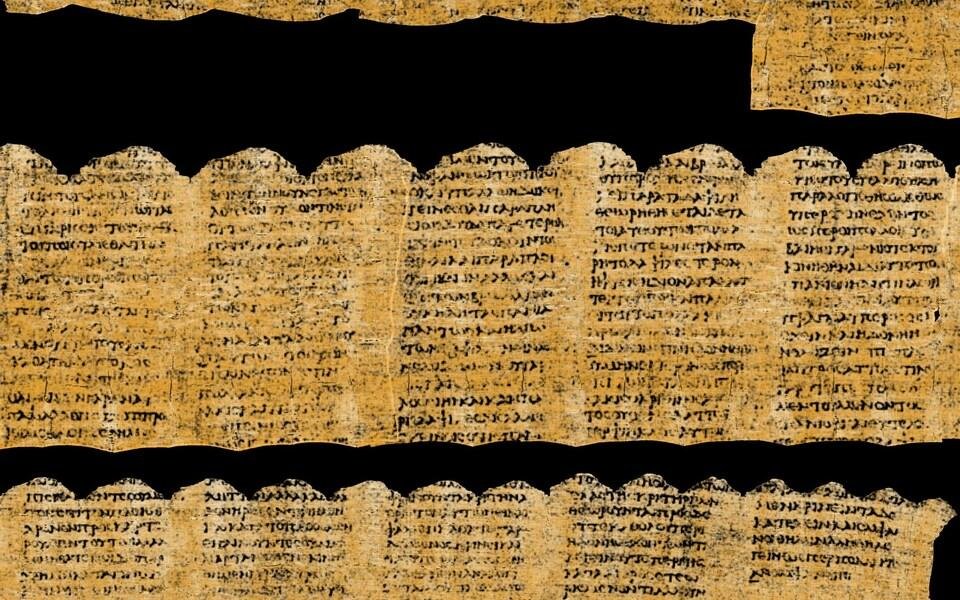Researchers use AI to read scrolls buried by Vesuvius eruption
Classical scholars and AI enthusiasts alike are celebrating a groundbreaking achievement in unlocking the secrets of antiquity as a group of students, armed with artificial intelligence, have successfully deciphered a charred Roman scroll buried nearly 2,000 years ago during the eruption of Mount Vesuvius in CE 79.

The scroll, a part of the Herculaneum Papyri, was one of around 1,800 scrolls discovered in the 18th century within the Villa of the Papyri in Herculaneum, Southern Italy. These scrolls, originally believed to be part of a library owned by Julius Caesar’s father-in-law, were rendered unreadable by the intense heat and ash from the volcanic eruption.
Efforts to unravel the mysteries of these ancient texts have long been stymied by their fragile condition. However, a breakthrough came with the Vesuvius Challenge, a competition launched in 2023 by Professor Brent Seales from the University of Kentucky, supported by Silicon Valley executive Nat Friedman. This challenge invited participants to develop AI-powered tools capable of deciphering the scrolls.
Recently, a trio of students – Luke Farritor from the University of Nebraska-Lincoln, Youssef Nader from Berlin, and Julian Schilliger from Zurich – emerged victorious, winning the $700,000 grand prize. Their collaborative effort utilized AI technology and 3D mapping to decipher the text, marking a significant leap forward in our understanding of ancient literature.

Farritor’s earlier breakthrough in identifying the Greek word for “purple” on one of the scrolls earned him a $40,000 prize. His subsequent work involved developing a machine-learning model capable of detecting subtle differences in texture on the carbonized scrolls, enabling the identification of previously invisible ink.
The deciphered passages, believed to be the work of the Epicurean philosopher Philodemus, offer insights into topics such as music, food, and the pursuit of pleasure. According to Professor Robert Fowler, chair of the Herculaneum Society, these texts could potentially rewrite key aspects of ancient history, shedding light on the lives and thoughts of people from the Greco-Roman world.

The successful decoding of this scroll represents just the beginning of a larger endeavor. With hundreds of scrolls still awaiting decipherment and the possibility of undiscovered texts buried within the villa, scholars are optimistic about the future of this research. The ultimate goal is to unlock the full extent of knowledge contained within these ancient documents.







WOW – so much waiting to be discovered. And yet we thought we pretty much knew everything. This is a good purpose for A1.